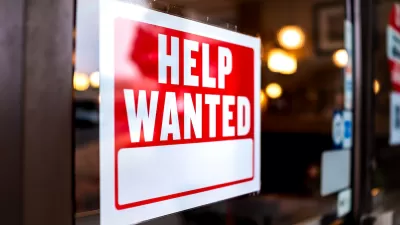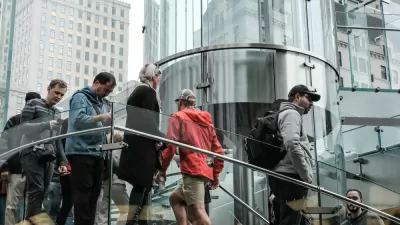Offering a list of policy innovations in several emerging mega-cities, URB.im managing editor Josephine d’Allant argues for empowerment over charity in the battle to improve conditions for the urban poor.
The most effective urban anti-poverty programs, d’Allant argues, are those that provide low-income groups with the “tools to help themselves.” For d’Allant, this means a focus on not only creating, but enabling employment.
D’Allant cites the case of Rio de Janeiro, where the government is expanding access to childcare services in an effort to enable the growth of two-income households. Alongside this, the government is partnering with NGOs to improve job skills and offer training courses to improve employability.
In addition to providing childcare services and training courses, d’Allant argues that increasing access to technology is another effective way to reduce urban poverty. In Jakarta, d’Allant finds pioneering work by IT activist Onno W. Purbo, who is seeking to expand affordable internet access among the urban poor. This, d’Allant argues, is a major step towards closing the “digital divide,” which is a major barrier to not only employment, but technical skills and employability.
Next, d’Allant offers examples where new government programs are striving to improve opportunities for those facing multiple barriers to employment. In Mumbai, a program called Mettaa employs blind individuals to give reflexology massages and, in so doing, increases both their self-sufficiency and combats the exclusionary stigmas often faced by India’s disabled.
D’Allant explores these examples further and invites others to contribute on the urb.im blog. In the quest for “just and inclusive cities,” d’Allant writes, programs that enable the urban poor to improve their own welfare are “in many ways more compassionate, and certainly more empowering, than any charity program.”
FULL STORY: Give the Urban Poor Opportunity, Not Just Charity

Alabama: Trump Terminates Settlements for Black Communities Harmed By Raw Sewage
Trump deemed the landmark civil rights agreement “illegal DEI and environmental justice policy.”

Study: Maui’s Plan to Convert Vacation Rentals to Long-Term Housing Could Cause Nearly $1 Billion Economic Loss
The plan would reduce visitor accommodation by 25% resulting in 1,900 jobs lost.

Planetizen Federal Action Tracker
A weekly monitor of how Trump’s orders and actions are impacting planners and planning in America.

Waymo Gets Permission to Map SF’s Market Street
If allowed to operate on the traffic-restricted street, Waymo’s autonomous taxis would have a leg up over ride-hailing competitors — and counter the city’s efforts to grow bike and pedestrian on the thoroughfare.

Parklet Symposium Highlights the Success of Shared Spaces
Parklets got a boost during the Covid-19 pandemic, when the concept was translated to outdoor dining programs that offered restaurants a lifeline during the shutdown.

Federal Homelessness Agency Places Entire Staff on Leave
The U.S. Interagency Council on Homelessness is the only federal agency dedicated to preventing and ending homelessness.
Urban Design for Planners 1: Software Tools
This six-course series explores essential urban design concepts using open source software and equips planners with the tools they need to participate fully in the urban design process.
Planning for Universal Design
Learn the tools for implementing Universal Design in planning regulations.
Caltrans
Smith Gee Studio
Institute for Housing and Urban Development Studies (IHS)
City of Grandview
Harvard GSD Executive Education
Toledo-Lucas County Plan Commissions
Salt Lake City
NYU Wagner Graduate School of Public Service





























